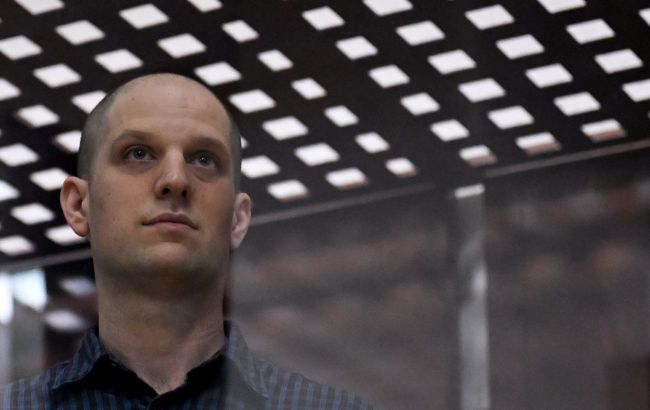Negotiations on exchange between Russia and the West lasted 2 years - Reuters
 Photo: American journalist Evan Hershkovich (Getty Images)
Photo: American journalist Evan Hershkovich (Getty Images)
Negotiations on the prisoner exchange between Russia and the West lasted more than two years. Russian opposition leader Alexei Navalny was supposed to be released as part of the exchange, Reuters reports.
The news agency, citing its sources, notes that the United States and Russia began negotiating the exchange in early 2022. This happened after the detention of American basketball player Brittney Griner in Russia. In February 2022, the Russians were ready to talk and repeatedly approached Washington with a proposal.
Russia wanted to return the killer Vadim Krasikov and was ready to release former US Marine Paul Whelan. US officials say it was supposed to be a "spy for spy" deal.
However, the exchange did not take place, as Krasikov was serving a life sentence in Germany for the murder of former Chechen field commander Zelimkhan Khangoshvili in 2019. Berlin was against the release of the murderer.
In December 2022, basketball player Griner was exchanged for arms dealer Viktor Bout.
Navalny's role
In early 2023, negotiations on the exchange resumed. The United States met with German representatives to release Whelan, an infantryman, from a Russian prison. Washington suggested that Berlin request the release of Russian opposition leader Alexei Navalny. This was supposed to "sweeten" the deal for Germany to extradite the killer Krasikov. But Germany initially did not like the idea, fearing that Navalny might return to Russia.
In 2023, two journalists were detained in Russia - The Wall Street Journal correspondent Evan Gershkovich (in March) and Russian-American Radio Liberty journalist Alsu Kurmasheva (in October). After that, Washington made another offer to Moscow, which did not include the exchange of Krasikov. Russia rejected it.
US Vice President Kamala Harris also worked on the exchange. She met with Slovenian Prime Minister Robert Golob during the Munich Security Conference. The parties discussed the transfer of two spies who had already been detained in Russia. Harris also met with Scholz. During this period, it became known that Navalny had died in a Russian colony.
The last steps
In early 2024, the Biden administration began compiling new lists of Russian political prisoners to discuss with Germany but saw no progress. In late April, Biden sent a letter to Scholz describing a complex potential deal.
In June, the German chancellor gave the green light for Krasikov's release. According to the publication, Washington accelerated its new offer to Moscow but decided to wait. Encouraging signs began to emerge from Russia as Mokva began to speed up the trials of Gershkovich and Kurmasheva.
In July, the Biden administration received official notification that Russia was ready to accept the deal. This happened two weeks ago.
Preparations for the exchange were underway even as President Biden's political future was falling apart. He called the Slovenian Prime Minister to negotiate the final part of the deal, hours before he released a letter on July 22 announcing that he would not run for a second term.
Exchange between Russia and West
On August 1, the United States, Germany, partner countries, and Russia conducted a major prisoner exchange. Twenty-four people were released.
Russia handed over convicted journalists, politicians, and political prisoners to the West. Germany extradited to Russia the killer Vadim Krasikov, who was sentenced to life in prison for the murder of former Chechen field commander Zelimkhan Khangoshvili in 2019.
Germany said that Krasikov was deported from the country but not pardoned. Olaf Scholz said it was not an easy decision.

